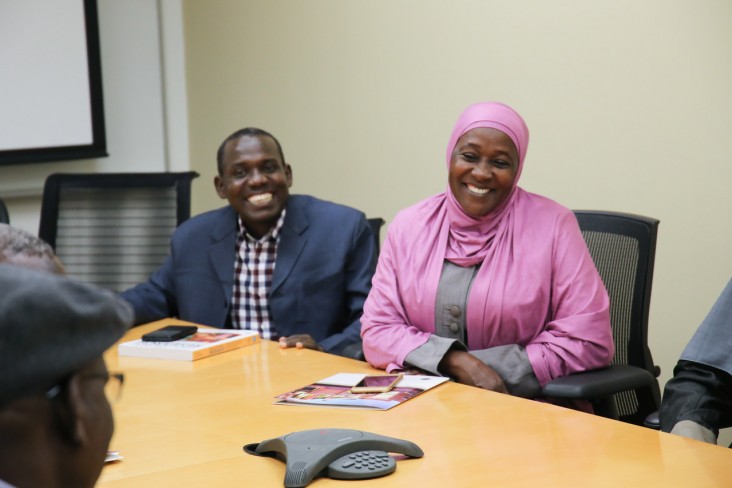Speeches Shim

Over the past three years, a unique collaboration between the U.S. Agency for International Development (USAID), Nigeria’s Bayero University in Kano (BUK), and Florida State University (FSU) in the United States has helped Africa’s most populous country strengthen its ability to teach early grade reading, the foundation of lifelong learning.
This activity supported the training and mentorship of six BUK Faculty Fellows on cutting-edge research, teacher training, and the process of publishing academic articles during a six-month residency at the FSU Center for Reading Research. This activity culminated in establishment of a new Nigerian Center for Reading Research and Development on the BUK campus.
“This new focus on raising this quality of teaching and learning was borne out of the realization that reading is fundamental to education,” said Prof. Muhammad Yahuza Bello, Vice-Chancellor of BUK. “No nation can achieve meaningful development without inculcating effective reading skills amongst its growing generations.”
Now a permanent part of the BUK community, the new Research Center will facilitate research on all matters that affect reading and the teaching of early grade reading in Nigeria. The six BUK Faculty Fellows are thought leaders, researchers and champions for the adoption of the best teaching and learning practices in reading throughout Nigeria.
During their time on the Tallahassee, Florida campus, the BUK Fellows participated in scholarly activities, published journal articles, and presented their work at educational forums. In coordination with other USAID activities, the fledgling Center hosted two national conferences attended by more than 800 education stakeholders at the national, state, and local levels to share and publicize reading research findings for the Nigerian context.
“At USAID we have a passion for education and high hopes for its future in Nigeria,” Mission Director Stephen M. Haykin said. “In that spirit, this partnership played a critical role in ensuring the next generation of Nigerian children is equipped with the reading skills that will serve as the basis for a lifetime of learning.”
The partnership promises to benefit education in Nigeria for years to come, having developed a new cadre of leaders and trainers in reading research who will champion the advancement of high-quality reading instruction, learning and research for future generations of teachers in primary grade reading strategies to effectively teach more children to enjoy a lifetime of reading.
The Center also serves as a clearinghouse where education stakeholders can leverage data and approaches to effect positive changes in the classroom and improve learning across Nigeria through stronger reading curricula for millions of students.
Research shows that a child who starts to read in a language he or she understands will be better equipped to take on learning a foreign language in later grades, and ultimately get more out of his or her education.
Since 2015, USAID has embraced this concept, distributing more than three million books and teacher’s guides for early grade reading in Hausa and English in the north. Similar materials are under development in Igbo and Yoruba to serve children in other areas of Nigeria. Nigeria’s education system is challenged to keep pace with its rapidly growing population.
USAID works to strengthen state and local education systems in partnership with all Nigerians. The Center is an important step forward to deepening early grade reading resources available in Nigeria.

Comment
Make a general inquiry or suggest an improvement.